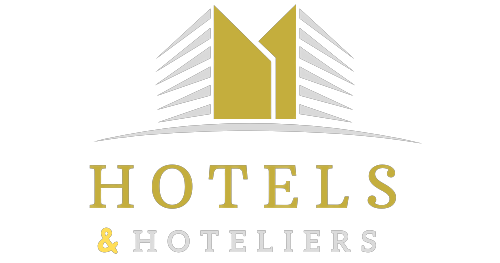Sales Leader: Strategies To Increase Hotel Revenue
As we must know, the sales department in a hotel is responsible for generating revenue by selling rooms, event spaces, and other hotel services to individuals, groups, and businesses. In this post, we will discuss some of the key points of the sales strategies to increase hotel revenue. For all of those whom are striving to be high-performing Sales Leaders, this article will help you for making good decisions and book the best pieces of business for your hotel. We will discuss some of the best sales strategies to increase hotel revenue for prospecting, booking, and retaining business within all target market segments and some key routines we highly recommend:
1. Know Your Hotel
One of the first and most important sales strategies for winning a business opportunity is that you need to be an expert regarding your product. This includes:
- Knowing your Hotel Amenities and Services like a pro.
- Hours of your Restaurant/Breakfast, Pool, and Fitness Center.
- Guest room types and how many rooms you can offer within each.
- Function space capacities and setup styles available.
- Audio/Visual and Banquet Menus.
- Target Pricing for Negotiated Accounts and Group Leads.
- Available Concessions to use when Negotiating (1. Consider concessions of monetary value such as upgrades, gift baskets, meeting space, and breakfast. Relevant concessions that can save the planner time and energy can be of unlimited value to the planner and cost the hotel nothing! 2. Consider special welcome receptions, and packets of information that are tailored to the group regarding local attractions, nearby restaurants, and possible game or event schedules. Even pre-keyed rooms and options like late check-out or early checking can be invaluable! 3. Concessions to ask from the customer could include LRA v.nonLRA, access to new business/contacts, marketing opportunities and even the removal of a competitor).
- Local Area Packages Available.
- Success Stories/Positive Referrals from past groups or existing customers.
By knowing your brand and what it stands for, you will have a better idea of who to target. Look for companies with similar brand messages that would be a good fit for your hotel.
2. Know Your Competition
Knowing your competition is another key factor in sales strategies. To sell against the competition, you need to be an expert at what they can offer and also the best ways to sell against them…in a friendly, hospitable way of course!
- Understand the comp set Hotel Amenities and Services.
- Guestroom types and anything unique about their hotel.
- Function space capacities and setup styles available – Is their function space all on one level? Are there columns/pillars in their rooms that could be a distractor?
- Local Area Packages they offer.
- Audio/Visual and Banquet Capabilities.
Perform quarterly SWOT analysis using the Revenue Management Value Assessment tool to get started. Be prepared to present solutions positively when selling against the competition
3. Know Your Market
Knowing what is happening in your area is another crucial factor in sales strategies to increase hotel revenue.
- Be aware of new hotel construction.
- Familiarize yourself with renovations in your competitive set.
- Know citywide and special event dates.
- Be aware of mergers of key companies, as well as companies that are going out of business.
Stay plugged-in to businesses coming to your area within existing buildings (not just new construction)
4. Know Your Needs
Not every piece of business is the right piece. Business opportunities should be the BEST business opportunities for your hotel. In order to do this, you must understand your hotel’s needs.
- Review / understand your hotel’s revenue goals for the year.
- Know your forecasted mix of sales – how many room nights are you forecasting to gain in Negotiated and Group Business?
- What is your hotel’s BAR (Best Available Rate) Structure?
- Talk with your Revenue Manager to ensure you are aligned on areas of opportunity.
Identify target market segments you need to pursue to help you achieve your targeted mix of sales. To help you get started, review the Market Segment Action Plans
5. Why Your Hotel?
Knowing all the options our clients have, be prepared to answer the question, “Why should I stay with you?”. Make sure to reference features and benefits that are relevant to each client. Avoid “feature dumping” all of the available options, but instead focus on what is important to the client. Here are some examples:
- Customer A is concerned about price/value: Focus on included amenities that offer cost savings such as a shuttle, reception or breakfast.
- Customer B is focused on efficiency: Focus on the ability to pre-key rooms to expedite the check-in process or the ability to utilize Digital Key. Offer an option to quickly make a group reservation online, or promote Digital Check-In and Digital Key.
- Customer C is looking for approval from the team: Focus on amenities that benefit the team and will make the customer feel appreciated such as any Honors program and the benefits available to all members.
Key Hotel Sales Strategies
Our highest-performing Sales Leaders and hotels have some common trends. These specific behaviors, through research, have differentiated high-performing properties from mid-performing properties.
- Use the STR Report as your primary tool to analyze sales positioning.
- Review sales performance with your GM weekly.
- Actively participate in Revenue Management strategy calls with your GM and Revenue Manager.
- Limit groups and negotiated account business with negotiated rates on peak nights.
- Show appreciation for Housekeeping and Food & Beverage teams, and develop processes that make executing groups and events easier.
- Support the Front Desk Team in service delivery.
Weekly Agenda Sales Strategies
This agenda template provides suggestions to assist sales leaders in organizing their sales activities and preparing for meetings with hotel leadership to achieve their sales strategies. Adjust this template to fit your goals and needs.
Strategize for next week’s sales call plan:
- 8-10 outside calls
- 2-3 site tours
- 20-40 telemarketing/prospecting calls
Evaluate the past week’s sales activity:
- How many bookings are “repeat” versus “new” accounts?
- Of the bookings, what’s the percentage of inquiry bookings vs. developed business? Do you have a good mix of sales calls (new appointments, warm calls, maintenance calls, etc.)?
- Discuss successes, small wins, and challenges.
Pulse check top accounts:
- What top accounts were visited/contacted this week? What important/new information was uncovered during the appointments?
- What accounts are trending up vs. down in production compared to last year? Why? Develop action plans, as needed.
Review outstanding leads, proposals and contracts:
- Are there any group leads in MeetingBroker that you need to respond to?
- Any proposals you’ve sent that need to be followed up on?
- When are recently sent contracts due?
- If past the due date, has the client been contacted?
- At what point will we release blocked rooms for outstanding contracts?
Analyze weekly performance of hotel:
- How is the hotel performing compared to this date last year? Review forecast for the month versus budget.
- How is the hotel pacing with transient and group reservations?
- Review weekly STR report; discuss opportunities and celebrate wins.
Review upcoming groups for next 45 days:
- What are the check-in times for group arrivals next week? Communicate these times with your entire team and anticipate group needs.
- Are there any upcoming cutoff dates for group inventory? Has the client been contacted? Will the cutoff date be extended?
- Are there any meeting-only groups in-house next week?
- Are there any special needs requiring additional staffing or supplies (luggage assistance, extra hostess due to heavy group breakfast, high attention groups, etc.)? Communicate these with your entire team and anticipate group needs.
Practice prospecting:
- Do you have time for your prospecting efforts blocked on your calendar for the upcoming week?
- What new accounts are entering the market? What accounts are leaving? Are any companies expanding?
- Review each week’s arrivals for new companies staying with you.
- Identify 1-2 days next week that you will talk to in-house guests at breakfast or during evening hours.
Cross-communicate with key players:
- Discuss high/low demand times and determine strategies. Partner with your Revenue Manager/hotel leader weekly. Update GRO, as needed.
- Make sure that all hotel leadership (GM, DOS, Sales Manager, AGM, F&B Director) is in sync with the Revenue Management strategies in place.
- During huddle, update your hotel team with current sales and revenue management strategies. Does your team understand the “why” behind your strategies? Do they know who your top accounts are? Do they know who your target accounts are?
Monthly Agenda Sales Strategies
As with the weekly agenda template, these activities are suggestions to support your sales objectives. Please adjust according to your particular needs. In addition to the weekly agenda, the following items should be reviewed during a monthly meeting with hotel leadership.
Analyze end-of-month performance:
- Keep on pulse with monthly performance through the STR Report.
- What was the hotel’s Occupancy index, ADR index, and RevPAR index for last month? How did the property compare to the comp set?
- What is the hotel’s current Mix of Sales? Review the highest revenue market segments vs. the lowest. Should there be a shift in mix to increase profitability?
Evaluate negotiated accounts:
- Which negotiated accounts are producing as agreed upon? Which ones are producing higher? Is there a special project or development driving these numbers? Send these accounts a “thank you!” happy.
- What accounts are trending down, and why? When was the last time the decision makers/influencers were contacted? Add these accounts to your immediate list to reach out to.
- What accounts haven’t had any production this year, compared to last year? Why? Add these accounts to your immediate list to reach out to.
- Review day-of-week trends to identify accounts that are only producing during peak days. (Key Hotel Marketing Reports > All Corporate Accounts by Day of Week)
Review target accounts:
- Keep your Account Hit List posted somewhere visible as a constant reminder of what accounts you’re targeting. Does your Hit List include accounts that address your hotel’s day of week Occupancy need?
- Low on weekdays? Look for corporate accounts. Need to increase on weekends? Target group business.
- Utilize this Account Infiltration Worksheet to help track efforts when digging deeper into existing accounts.
Determine sales & marketing plan:
- What are your occupancy, ADR and RevPAR goals for the month? For the next 90 days? Are you on target to meet those goals?
- If so, what worked well last month? What promotions worked well/didn’t work well?
- Customize flyers, eCards, invitations to the hotel, etc., as needed.
Assess lost business: (For each lost group, discuss why the business was lost)
- If lack of availability, does occupancy forecasting need to be adjusted? Does GRO know what you know?
- If due to rate, does your rate structure need to be adjusted?
- Trace lost groups for future follow up.
Maximize online presence:
- Review your property’s Trip Advisor & Booking Ranking. How do you rank against the competition in your market?
- Audit your hotel’s website. Is all information correct? Are photos updated?
- Take action on the impact Scorecard Content Audit and Recommendations provided by the eCommerce Team.
Run key reports:

- Pulse Report
• Key Hotel Marketing Reports
° Top Accounts by Month
° Top Accounts by Day of Week
° Corporate Accounts by Rate Plan
° Corporate Accounts SRP Analysis
• Cognos Mix of Sales
• Top 100 Guest Report
• GRO Reporting
° Pace Report
° Overrides
° Overbookings / Wash
• Impact Scorecard: Content Audit and Recommendations
Another important key point when it comes to sales strategies for increasing hotel revenue is Dynamic Pricing. Implement dynamic pricing strategies that adjust room rates based on demand, seasonality, and other factors. Utilize revenue management systems to optimize pricing and maximize revenue during peak periods. Upselling and Cross-selling, as everyone in the hotel industry must know, is another key factor to increase hotel revenue. Train your staff to upsell and cross-sell additional services or upgrades to guests during the booking process or at check-in. This could include room upgrades, spa treatments, dining options, or other amenities.
Extra Tip: For all the sales team out there seeking for sales strategies, keep in mind that building corporate partnership is crucial. Make partnerships with local businesses, corporations, and event planners to secure group bookings, corporate events, and meetings. Offer customized packages and discounts to attract business clientele.
Images on the article are not copyrighted – PIXABAY (Free to use under Pixabay Content License)


